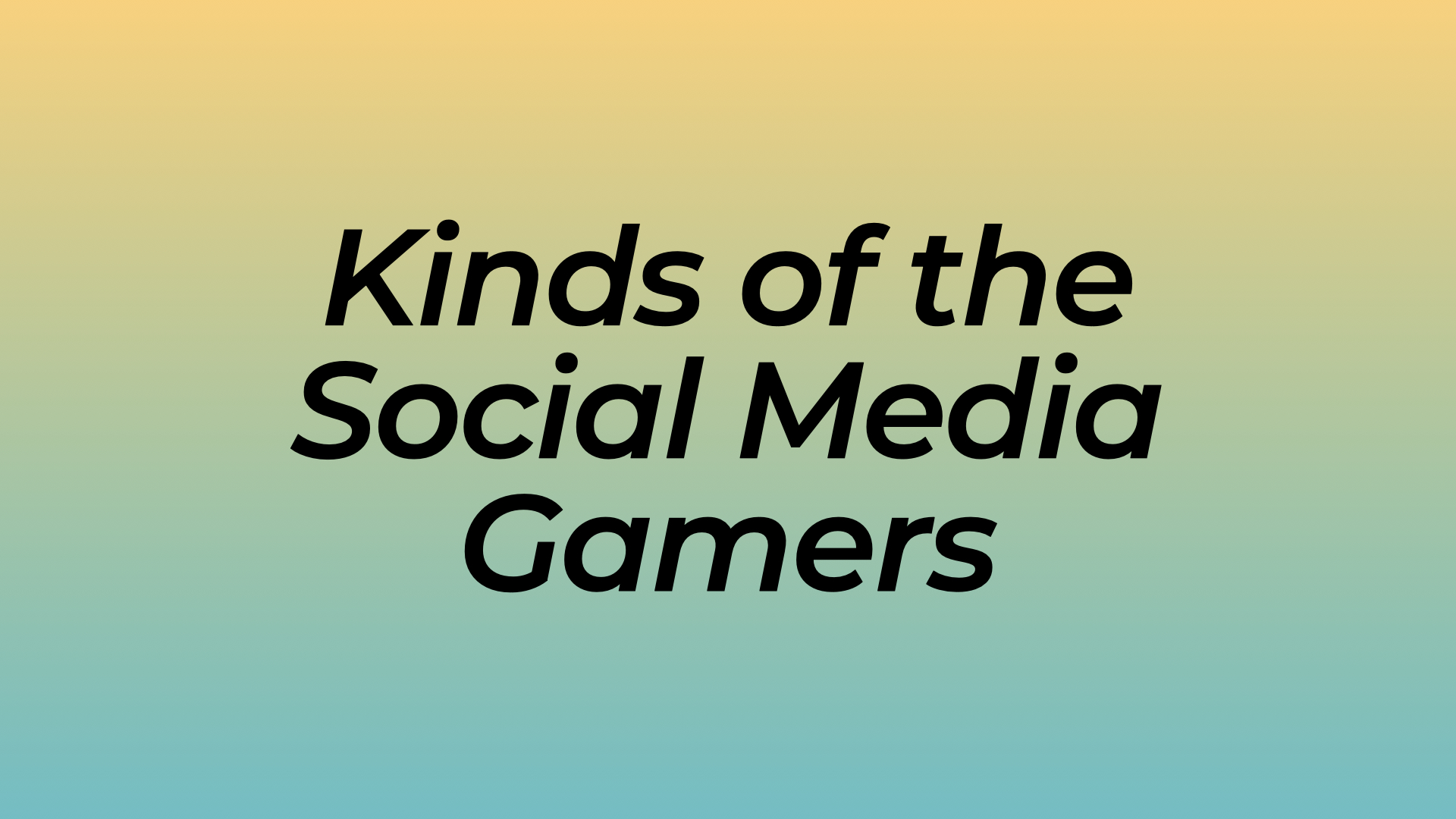Lately I’ve been thinking about how most people —including myself— take social media too seriously and let these platforms dictate how they’re using the internet. This rabbit hole made me think a lot about my relationship with these platforms as well and how I can turn it around and make it more beneficial for me.
Then, during a recent conversation with Jay, he mentioned how a friend treats social media like a game and doesn’t take it too seriously. At first, it sounded like a good approach to me in general. But then my brain started to overthink it and matched different types of social media users with different kinds of gamers. The more I thought about it the more it turned into a thought experiment to see how deep I can go and I ended up with this seven different typologies.
Casual Users: They’re the ones overlooked the most but always form the real majority, both in games and social platforms. They don’t care about all the stuff “hardcore players” care and use the platform without too much investment. Their interactions are usually more passive and they might seem like they don’t contribute much but without them, your game or platform can’t survive. They’re the balancing factor against all the hardcore players. Their absence is the reason why Bluesky or Mastodon can’t compete with the other platforms.
Here for the Friends: People in this group can be active players but they’re not actually here for the game but for the community they have. They don’t care much about what the game offers. As long as they can spend time with their friends, they’ll stick around. But the moment their friends decides to play another game or the game makes it impossible for them to spend time together (like forcing random people into their feeds and make staying in touch with their friends harder) they’ll quit. This is why most MMO type games try to make sure a new player doesn’t have to grind too much just to play with their friends.
Meta Hunters: This group is the one who only cares about the notifications and analytics pages. Their main goal is to optimize everything they’re doing to get maximum interaction and make numbers go up. You know who they are. Just like they don’t have a real preference in games, they don’t have any personality or taste in social media. They can defend or promote anything as long as it brings them better numbers. They might be enjoying their time but they’re making things worse for everyone else.
Toxic Streamers: Just like some games have famous streamers, social media has their own celebrities. Some of those are decent people but there’s a group of toxic ones who thinks that their fame on the game gives them a right to dictate how things should be. They can complain about stuff in the game they don’t like and expect it to be fixed immediately because “they’re big”, just like some big social media users expect special treatment. I think Elon Musk and his relationship with Twitter is the most extreme example of this group.
Lore Nerds: Some video games have a solid fanbase mainly because of their story. People continue to play the game because they want to see how the story develops. I think the social media players who are addicted to the discourse happening on the platform is the same. They continue to stay on these platforms because they don’t want to miss the latest discourse or the developments in the most recent one. This is why there are people you can follow to catch up with the lore on both: what My Name is Byf means for Destiny 2 players is the same for what Garbage Day means for social media players.
For games this is usually a good thing but on social media it usually makes things worse.
Grass Deficient Players: If you take the game you’re playing too seriously and become toxic because of it, you’ll end up someone telling you “go outside and touch some grass”. And just like in games, we have people on social media who need to hear this recommendation regularly. They act like this game is the most important thing in their lives and become really aggressive and violent because of this. They need help but this doesn’t mean that you should be the one helping them. Giving them the proper advice and then blocking them is the only proper response.
Glitchers: This group is a lesser known minority who enjoys their time the most. They know how the game works and they can be really good at it but they don’t care at all. What they’re after is pushing the limits of the game, finding the breaking points and misusing the parts. Their knowledge of the game is used to play a completely different game and create a special place for themselves. Their main goal is to have fun and learning the game so that they can break and manipulate it for this goal is the way.
I’m not sure where I want to go with this or how useful these categories are. But it was fun to think and write about it, and it also made me think about social media from a fresh perspective. If you think I’m missing any other gamer stereotypes or have some ideas about how this thought experiment can be used I’d love to hear about it.


Leave a Reply